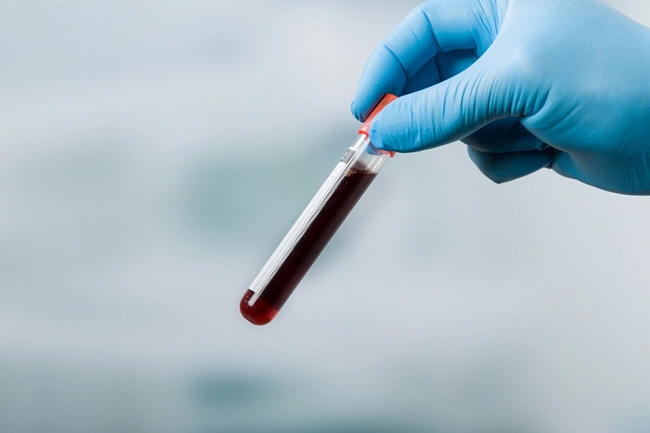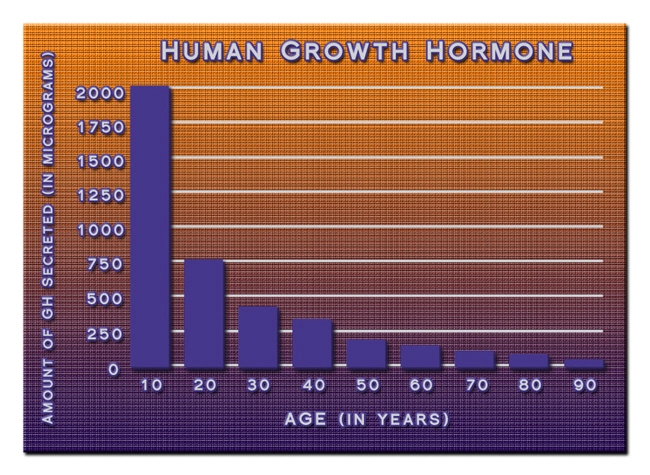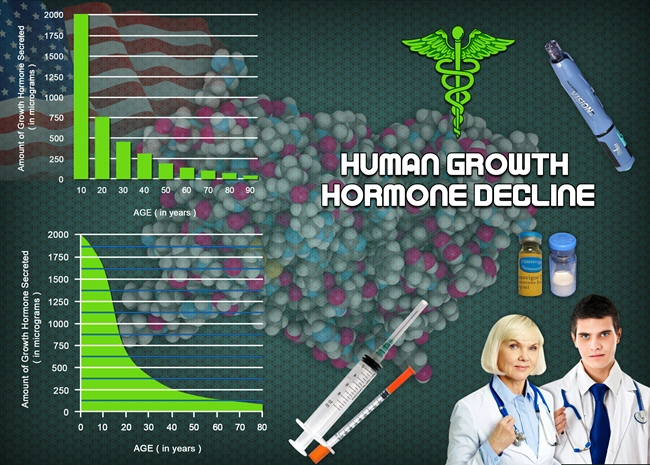
Video Link: https://vimeo.com/479184864
Video Download: Click Here To Download Video
Video Stream: Click Here To Stream Video
Video Link: https://vimeo.com/479186450
Video Download: Click Here To Download Video
Video Stream: Click Here To Stream Video
Video Link: https://vimeo.com/479187582
Video Download: Click Here To Download Video
Video Stream: Click Here To Stream Video
Rapamycin:
A miracle cure for aging?
Or a path to severe adverse side effects?
Here are both sides of that question. You decide.
In 1964, a Canadian research expedition departed for a remote, mysterious island in the Pacific Ocean over 2100 miles from the coast of Chile known as Easter Island. The location's main claim to fame is that it is home to nearly none-hundred gigantic stone heads that stand guard a long the island’s shoreline.
The researchers were not concerned about the statues, as alluring and fascinating as they are. They were not archaeologists but biologists on the lookout for  endemic microorganisms. In their digging, they uncovered a unique substance, a new actinobacterium, a single-celled organism called Streptomyces hygroscopicus. When the substance was isolated, it secreted an antifungal compound that the researchers named rapamycin, in honor of the island’s original name Rapa Nui.
endemic microorganisms. In their digging, they uncovered a unique substance, a new actinobacterium, a single-celled organism called Streptomyces hygroscopicus. When the substance was isolated, it secreted an antifungal compound that the researchers named rapamycin, in honor of the island’s original name Rapa Nui.
The compound lay dormant until the late 1980s when one of the original researchers began to study it again. Soon, researchers determined that the substance was an efficient suppressor of the immune system, and this sent them in a new direction of its effectiveness in organ transplants.
A significant problem with organ transplants is rejection by the immune system of the recipient’s body. Rapamycin lowers the immune system, and it has proven to be invaluable in that function.
But it may also extend lifespans
Scientists discovered that rapamycin extended the lifespans of fruit flies by 5%, and in mice 9-14%. The question then arose: could rapamycin show the same life-extending ability if given to humans? The answer is “yes...but it is not that simple.” Let’s take a look at what the research shows.
The mTOR pathway is a longevity pathway that evolved to protect the body in challenging circumstances by kicking in survival mechanisms. The mTOR pathway gets its name (mammalian target of rapamycin) from the compound found on the island and mentioned earlier.
When we are fasting or dieting, or exercising intensely, our bodies release more growth hormone and become healthier, develop a more robust immune system, and battle aging. The mTOR pathway is influenced by a molecule related to rapamycin, and the result is rapamycin delivers benefits similar to fasting and exercise.
However, fasting and exercise are challenging and not easy to stick with. This explains the allure of rapamycin, since taking a pill is easier than going hungry and working out.
working out.
But mTOR has two pathways: the mTORC1 (mTOR complex1) and mTORC2 (mTOR complex 2). And here lies a significant problem with rapamycin. The substance affects both of these pathways.
Suppressing mTORC1 delivers health benefits, but blocking mTORC2 can result in side effects such as mouth sores, a suppressed immune system, and symptoms of type-2 diabetes. So that begs the question: how do we deliver the benefits without the side effects?
One possible answer is the dose. As mentioned earlier, rapamycin is mainly prescribed to suppress the immune system in patients that have received an organ transplant. For that purpose, the dose is usually 2mg daily. For life-extension purposes, the amount is as low as 0.5 daily, or between 5-7mg weekly.
In one study, older people taking the drug for six weeks didn’t see their immunity decrease—it actually increased in groups that took as little as 0.5mg a day or 5mg a week. As mentioned earlier, adult transplant patients typically take a 2mg dose every day.
Rapamycin works by lowering the activation of T cells and B cells that are critical in immune reactions against foreign invaders. This leads to another question: why would weakening the immune response be in anyone’s best interests?
One possible answer is that our immune systems become less efficient as we age. Several studies have determined that inflammation is one of the crucial causes of aging, and as we age, we often develop a continual, low degree of inflammation.
This results in our cells becoming tired and worn-out after countless divisions and replications, and this may confuse the immune system since these old cells resemble invaders. Consequently, the immune system may begin to overwork and eventually weaken under the constant barrage of false alerts.
Therefore, the theory concludes that a “tamped-down” immune system will stop overworking and overreacting, which will keep it potent enough to battle disease, attack the real problems, and slow aging. At least, that’s the theory.
Dr. Joan Mannick, the chief medical officer for resTORbio, said that a type of rapamycin (RAD001) “...enhanced the response to the influenza vaccine by about 20% at doses that were well tolerated.” She also stated that her research team found improvement in T cell function.
Rapamycin may also help to prevent wrinkles and saggy skin
Presenting a youthful appearance is, for many people, one of the most critical metrics of good health. As we age, this is easier said than done. Dry, wrinkled skin has proven to be a determined foe of the many approaches to skincare.
However, a recent study published in the journal Geroscience found that rapamycin led to reductions of wrinkles and skin sagging, and improved the skin tone of study participants.
 The research, carried out by scientists at Drexel University College of Medicine, is the first to demonstrate the rejuvenation potential of the drug on human skin.
The research, carried out by scientists at Drexel University College of Medicine, is the first to demonstrate the rejuvenation potential of the drug on human skin.
“When cells age, they become detrimental and create inflammation. That’s part of aging,” said senior author Christian Sell, Ph.D. “These cells that have undergone stress are now pumping out inflammatory markers.”
The research team noticed in earlier cell studies that rapamycin ramped up cell function and slowed down aging. Researchers also found that the drug extended the lifespan of yeast cells. The effects were observed after targeting TOR proteins in yeast with the drug.
In the new study, scientists decided to examine the effects of the compound on skin. “It’s a complex organism with immune, nerve cells, stem cells – you can learn a lot about the biology of a drug and aging process by looking at the skin,” stated Sell, an associate professor of Biochemistry and Molecular Biology at the College of Medicine, Drexel University. The investigation involved 13 volunteers over age 40.
The subjects applied a rapamycin cream to one hand and a placebo on the other hand for eight months. Every two months, the research team checked the subjects to determine what changes, if any, were occurring. Also, the team conducted blood tests and biopsy tests at six and eight months. Most of these subjects showed a collagen boost in the hands treated with rapamycin cream after eight months.
The researchers also concluded that the level of p16 proteins in the rapamycin hands was significantly lower, which indicates a slow down of the aging process. Higher levels of p16 speed up the rate of cell senescence, which results in wrinkles.
This is early research on the anti-aging effects of rapamycin on the skin, according to Sell and his research team. They added that there is much more to learn about how to best use the compound.
Rapamycin may stop sarcopenia
Fact: as we age, our muscles tend to shrink and lose strength. This condition is known as sarcopenia. The dictionary definition of sarcopenia is the degenerative loss of skeletal muscle mass (0.5-1% loss per year after the age of fifty), quality, and strength associated with aging.
The results of sarcopenia are cruel. Some are obvious: the slow shuffle of older people, the stooped posture, the difficulty of lifting everyday objects, and chronic fatigue.
fatigue.
Worse, sarcopenia does not just adversely affect the quality of life. The disease is often a precursor to far more severe morbidities such as heart attack, stroke, and bone fractures from falling.
The bad news? In America, it is estimated that 53% of men and 43% of women past the age of 80 have sarcopenia.
The good news? Rapamycin may be able to ward off the disease. Previously, we discussed the pathway mTORC1, how rapamycin affects this pathway, and its importance in slowing aging.
A recent study undertaken by Professor Markus Rüegg discovered that the suppression of mTORC1 could be used to treat sarcopenia.
The protein complex, mTORC1, was found to be critical for the functioning of many of the processes of aging. Therefore, Ruegg and his colleagues decided to study and suppress this protein’s function with the goal of slowing the progression of sarcopenia.
The mTORC1 pathway controls protein synthesis and muscle mass. Boosting the activity of this pathway is vital for muscle hypertrophy (growth), and blocking it results in myopathy, a condition in which the muscles do not function properly.
Ruegg and his team used rapamycin to suppress mTORC1 and slow sarcopenia. They applied the results of previous studies and their hypothesis to this animal-model study.
Rapamycin preserves muscle size and function, and neuromuscular junction (NMJ) integrity. As we age, NMJ weakens, and this age-related NMJ instability is the primary cause of mTORC1 related sarcopenia.
Ruegg concluded that rapamycin is exceedingly beneficial for the treatment of sarcopenia as it showed outstanding results in the mice models. Also, Ruegg and his team developed an atlas to assist future researchers in further studying of the gene expression and aging process together.
Rapamycin may also have senolytic effects.
In other words, it may help to remove senescent (dead) cells that are toxic.
Here is a way to look at this process. When we age, many of our cells stop dividing. This would be fine if they would go away. But they don’t. Like an angry, grumpy old man, they sit in the corner and emit toxins that are harmful and may accelerate aging.
Rapamycin removes these dead cells through autophagy, which is the body’s way of housecleaning damaged cells and replaces them with newer, healthier cells. Autophagy occurs during fasting and also when following a ketogenic diet.
The result is an extended lifespan. This exciting development led many scientists to finally see aging for what it is: a debilitating disease rather than something that is “natural” and that “we must just live with.”
This paradigm shift caused many respected medical professions and researchers to seriously consider the possibility of slowing, stopping, and eventually even reversing the inevitability of aging.
Dr. David Sabatini, Ph.D., M.D, a professor of biology at the Whitehead Institute and MIT, explains the mTOR pathway like this: Pretend your body is an old house. Your oldest cells have all sorts of problems and are implicated in your home falling apart. “You couldn’t fully renovate the old house by bringing in only a plumber, or only an electrician, or a roofer, or a drywall guy,” says Dr. Sabatini.
“You’d need to hire a general contractor, who would hire all those specialists who would then come fix all those problems that needed to be fixed.” The mTOR pathway is like the general contractor, signaling to your body to demolish parts of its old cells and replace them with newer, healthier ones.
Dr. Sabatini thinks rapamycin essentially tricks the body into thinking that it’s in a state of calorie deprivation, which is what causes the contractor to call in all the guys for renovation work. The cellular workers consume your oldest, weakest cell parts, even parts of senescent cells. These are cells that no longer divide and are believed to spur aging and might cause cancer.
Which is to say that rapamycin could deliver the benefits of fasting minus the uncomfortable hunger pangs of starvation.
In addition to the studies on rapamycin in yeast, worms, flies, and mice, in 2014, scientists began to study our best friend: dogs. Amazingly, the study concluded that dogs on rapamycin showed signs of younger hearts and a reversal of age-related cardiac issues.
However, despite these promising findings, Dr. Sabatini is not yet sold. “I think [prescribing rapamycin] is bordering on unethical,” says the doctor, who does not take the drug. “I think we’re far away from knowing that there are no downsides to long-term use.”
take the drug. “I think we’re far away from knowing that there are no downsides to long-term use.”
Dr. Peter Attia, a well-known and respected voice in the longevity community, says he does not prescribe it to his patients at this time. “I take rapamycin myself, so on some level, I’ve decided it’s a smart option,” he says. “But I haven’t prescribed it to any patients, except one, who is himself a scientist studying rapamycin. And I think that speaks to my desire to better understand the risks, not only of taking too much but also of not taking enough.”
We’ll likely never be able to study directly whether rapamycin is a vital key to longevity, says Dr. Attia. It’s too time-consuming and expensive to do a study that could dig deep into the topic. “We’ll have to rely on some combination of proxies,” he says, and scientists are discussing the development of such tests to determine once and for all with rigorous scientific methods if the drug can do what its advocates say.
To that end, there are currently more than 2,000 clinical trials studying rapamycin worldwide, and nearly 1,000 of them are happening in the United States.
This could indicate that rapamycin is a rumbling volcano ready to explode: alternative health wellness gurus going on talk shows, tons of published articles, and sufficient ambiguity in the research to allow multiple interpretations that depend on what you are looking for.
The science is moving ahead with caution, as it must, and may never arrive at a definitive conclusion. Since rapamycin is generic, the giant pharmaceutical companies (“Big Pharma”) will ignore it since there is no profit motive, and they have to answer to their shareholders.
But this caution is ignored by many in the “aging is a disease that must be attacked by any and all means” camp. They feel that there is no time to wait and are jumping in feet-first, damn the consequences, full speed ahead.
What Rapamycin users are saying
Our first subject is a twenty-something assembly-line worker. As expected for a man his age, he is in excellent health and seldom runs to the doctor’s office. However, he is concerned about the future and the debilitating effects of aging. He is a regular at several online health forums and went vegan when he became convinced that veganism could extend his life.
He is doing good for now, but he wants to take things to the next level. “I’d like to live as healthily as possible for as long as possible,” he says. “And if we have therapies and practices today that will prolong our healthy life span, I believe we need to follow these therapies and practices.”
He feels rapamycin will make him healthier now and give him the chance to avoid the parade of horrors that his friends will experience, courtesy of old-man aging.
He started his rapamycin experiment with a weekly 7mg dose. He has since cycled the drug for almost a year and can’t tell if less joint pain and the mood boost he experienced are direct results of the drug or the placebo effect.
He had some mouth sores, indications of a compromised immune system, but they didn’t discourage him. He feels they may be a coincidence.
Another man is an average 50-year old who is concerned about the changes to his middle-aged body: excess fat accumulating around his mid-section, thinning hair, forgetfulness, and fatigue. Like so many rapamycin users, he studies and posts on several antiaging Internet forums and gobbles loads of supplements. “A few years back, when my granddad had cancer, I watched him die,” he says.
He researched alternative ways his granddad could try to stay alive. But like so many of that generation, his grandfather didn’t try them. Soon after, our  interviewee discovered a grim reality: “I took this 23andMe genetic test,” he says. “I found out I have a risk for Alzheimer’s.” It’s a risk that increases as your body ages.
interviewee discovered a grim reality: “I took this 23andMe genetic test,” he says. “I found out I have a risk for Alzheimer’s.” It’s a risk that increases as your body ages.
He began his rapamycin journey with a weekly 5mg dose of the drug added to the other supplements he takes. “I dropped 10 or 15 pounds in the three months I’ve been taking it. I feel less sore like I’m taking Advil. I was going to quit jujitsu a couple of years ago because of my joint pains, and now I’m rolling with 25-year-olds. My hair also seems a lot thicker.”
“I don’t know if it’ll make me live longer, but hopefully I can head off dementia,” he said. “And I feel good, man. So why not?”
The third subject is a 72-year-old who used to run five miles and lift weights, several sessions weekly. But as he approached 70, all of his efforts were not delivering the result he was looking for. “I began getting really tired in the afternoons,” he said. “I’d be too tired at night to go out to dinner, and I also started having high blood pressure. I was feeling the effects of aging.”
His strength was slowly evaporating, and he tired when walking, let alone running. He knew what was waiting around the corner: an assisted living facility.
He began a regimen of a 6mg dose of rapamycin once weekly. “My blood work quickly became that of someone 20 to 30 years younger,” he says.
These men found a solution to their concerns about aging at roughly the same place and time. They came across information in online threads and longevity blogs about a drug that seemed to be the exact thing they were searching for. It would slash the risk of Alzheimer’s, boost their energy to work out as they did in their younger years, and lower their aging biomarkers.
To these men and several thousand more like them, rapamycin seems to have the potential to be more potent than diet and exercise. But it was not without risks, some potentially severe.
Many other users who were interviewed had a broad range of opinions on rapamycin. They range from “probably helpful but no better than exercise” to “easily the most important drug ever discovered by mankind and should be a key topic of discussion in the upcoming presidential election cycle.”
Common side effects of Rapamycin
Let’s not mince words. Rapamycin is potentially dangerous. Approximately 5 per cent of patients in clinical trials experienced adverse side effects severe enough that they were forced to withdraw from the trials.
The FDA stamped rapamycin with a “black box” warning, its most extreme, for drugs that come with “serious or life-threatening risks”—risks like infections, pneumonia, and cancer.
Immunosuppression, lipid, and glucose abnormalities and pneumonitis are other potential issues that may make an unwelcome appearance a long with rapamycin. The fact that these problems may fade when the drug use stops is a small consolation.
The mTOR complexes have vital functions in muscle protein synthesis and activation of insulin receptors, and rapamycin will disrupt these functions. Remember, we are playing with mother nature, and the long-term implication of this experiment is unknown.
Is rapamycin for you?
Maybe. Maybe not. Despite the potential benefits of the drug, young people would probably be well-served to pass since there are far more potent and safer anti-aging breakthroughs coming within a decade or two.
On the other hand, for aging “geezers” suffering from a broad range of afflictions that are destroying their quality of life, rapamycin may be just what the doctor ordered.
Should a decision to try any of the vast arrays of anti-aging therapies be considered a civil right? Perhaps. There is an aging tsunami approaching America, and  we need every possible option to keep our aging population productive and disease-free for as long as possible.
we need every possible option to keep our aging population productive and disease-free for as long as possible.
The price tag for the medical burden of an elderly, sick population will be uncountable. The result will stifle economic growth and may eventually bankrupt the nation.
There are many exciting longevity developments on the horizon: stem cells, genetic engineering (CRISPR-9), nanotechnology, organ replacement through 3-D printing, joint replacement, DNA vaccines, and many more.
But to partake in these breakthroughs, we need to stay around as long as possible. And rapamycin may play a critical role in doing that. We must stop dealing with the consequences of aging and get to the root cause: the aging process itself.
Also, never forget that government regulatory agencies could throw roadblocks into this process and add decades of delay and trillions of dollars to the price of these new technologies. These are the same agencies that for years have been wrong about nutrition, supplements, resource depletion, overpopulation, and who knows what else.
But that does not mean that anyone and everyone should immediately start taking rapamycin. The FDA’s “Black Box” warning should not be taken lightly.
DO NOT TRY RAPAMYCIN WITHOUT A DETAILED DISCUSSION WITH YOUR PHYSICIAN! DO NOT TRY THIS AT HOME! DO NOT GO IT ALONE!
There is still so much research that must be done before rapamycin is considered safe.
There needs to be a balance between safety and medical progress. Hopefully, we will find it.
 One scientist was quoted as saying that “Someday, we’re going to look back at this era of change and say it all started with mTOR.”
One scientist was quoted as saying that “Someday, we’re going to look back at this era of change and say it all started with mTOR.”
And that’s so true. Rapamycin may be heralding in a new golden-age of longevity. Or it could be a fantastic way to kill us slowly.
It’s your choice. Choose wisely.
Link: https://doi.org/10.18632/aging.103816
https://www.reddit.com/r/longevity/comments/i6rq0n/update_on_rapamycin_treatment_for_dogs/
https://www.gilmorehealth.com/university-of-basel-muscle-aging-can-be-reversed-with-rapamycin/
https://www.menshealth.com/health/a28440858/anti-aging-rapamycin/
https://www.ncbi.nlm.nih.gov/pmc/articles/PMC6814615/
Contact Us Today For A Free Consultation
Dear Patient,
Once you have completing the above contact form, for security purposes and confirmation, please confirm your information by calling us.
Please call now: 1-800-380-5339.
Welcoming You To Our Clinic, Professor Tom Henderson.

- Our HGH Clinic And Web Site Privacy Policy [Last Updated On: May 23rd, 2019] [Originally Added On: December 14th, 2017]
- Idaho HGH Clinics [Last Updated On: August 26th, 2025] [Originally Added On: March 19th, 2018]
- Injectable HGH Prescriptions In Cheyenne, Wyoming [Last Updated On: April 15th, 2025] [Originally Added On: March 3rd, 2019]
- Injectable HGH Prescriptions In Milwaukee, Wisconsin [Last Updated On: April 19th, 2025] [Originally Added On: March 3rd, 2019]
- Injectable HGH Prescriptions In Madison, Wisconsin [Last Updated On: April 1st, 2025] [Originally Added On: March 3rd, 2019]
- Injectable HGH Prescriptions In Green Bay, Wisconsin [Last Updated On: March 22nd, 2025] [Originally Added On: March 3rd, 2019]
- Injectable HGH Prescriptions In Charleston, West Virginia [Last Updated On: May 17th, 2025] [Originally Added On: March 3rd, 2019]
- Injectable HGH Prescriptions In Vancouver, Washington [Last Updated On: February 18th, 2025] [Originally Added On: March 3rd, 2019]
- Injectable HGH Prescriptions In Tacoma, Washington [Last Updated On: January 16th, 2025] [Originally Added On: March 3rd, 2019]
- Injectable HGH Prescriptions In Spokane, Washington [Last Updated On: April 16th, 2025] [Originally Added On: March 3rd, 2019]
- Injectable HGH Prescriptions In Seattle, Washington [Last Updated On: May 30th, 2025] [Originally Added On: March 3rd, 2019]
- Injectable HGH Prescriptions In Washington D.C [Last Updated On: January 15th, 2025] [Originally Added On: March 3rd, 2019]
- Injectable HGH Prescriptions In Bellevue, Washington [Last Updated On: June 1st, 2025] [Originally Added On: March 3rd, 2019]
- Injectable HGH Prescriptions In Virginia Beach, Virginia [Last Updated On: January 18th, 2025] [Originally Added On: March 3rd, 2019]
- Injectable HGH Prescriptions In Richmond, Virginia [Last Updated On: January 25th, 2025] [Originally Added On: March 3rd, 2019]
- Injectable HGH Prescriptions In Portsmouth, Virginia [Last Updated On: April 10th, 2025] [Originally Added On: March 3rd, 2019]
- Injectable HGH Prescriptions In Norfolk, Virginia [Last Updated On: May 28th, 2025] [Originally Added On: March 3rd, 2019]
- Injectable HGH Prescriptions In Newport News, Virginia [Last Updated On: April 12th, 2025] [Originally Added On: March 3rd, 2019]
- Injectable HGH Prescriptions In Hampton, Virginia [Last Updated On: January 11th, 2025] [Originally Added On: March 3rd, 2019]
- Injectable HGH Prescriptions In Chesapeake, Virginia [Last Updated On: January 9th, 2025] [Originally Added On: March 3rd, 2019]
- Injectable HGH Prescriptions In Arlington, Virginia [Last Updated On: February 6th, 2025] [Originally Added On: March 3rd, 2019]
- Injectable HGH Prescriptions In Alexandria, Virginia [Last Updated On: May 24th, 2025] [Originally Added On: March 3rd, 2019]
- Injectable HGH Prescriptions In Montpelier, Vermont [Last Updated On: April 29th, 2025] [Originally Added On: March 3rd, 2019]
- Injectable HGH Prescriptions In West Valley City, Utah [Last Updated On: April 16th, 2025] [Originally Added On: March 3rd, 2019]
- Injectable HGH Prescriptions In West Jordan, Utah [Last Updated On: March 15th, 2025] [Originally Added On: March 3rd, 2019]
- Injectable HGH Prescriptions In Salt Lake City, Utah [Last Updated On: January 28th, 2025] [Originally Added On: March 3rd, 2019]
- Injectable HGH Prescriptions In Provo, Utah [Last Updated On: May 12th, 2025] [Originally Added On: March 3rd, 2019]
- Injectable HGH Prescriptions In Wichita Falls, Texas [Last Updated On: April 1st, 2025] [Originally Added On: March 3rd, 2019]
- Injectable HGH Prescriptions In Waco, Texas [Last Updated On: March 15th, 2025] [Originally Added On: March 3rd, 2019]
- Injectable HGH Prescriptions In San Antonio, Texas [Last Updated On: February 4th, 2025] [Originally Added On: March 3rd, 2019]
- Injectable HGH Prescriptions In Round Rock, Texas [Last Updated On: December 29th, 2024] [Originally Added On: March 3rd, 2019]
- Injectable HGH Prescriptions In Richardson, Texas [Last Updated On: March 10th, 2025] [Originally Added On: March 3rd, 2019]
- Injectable HGH Prescriptions In Plano, Texas [Last Updated On: February 6th, 2025] [Originally Added On: March 3rd, 2019]
- Injectable HGH Prescriptions In Pasadena, Texas [Last Updated On: March 31st, 2025] [Originally Added On: March 3rd, 2019]
- Injectable HGH Prescriptions In Midland, Texas [Last Updated On: April 23rd, 2025] [Originally Added On: March 3rd, 2019]
- Injectable HGH Prescriptions In Mesquite, Texas [Last Updated On: April 9th, 2025] [Originally Added On: March 3rd, 2019]
- Injectable HGH Prescriptions In McKinney, Texas [Last Updated On: May 19th, 2025] [Originally Added On: March 3rd, 2019]
- Injectable HGH Prescriptions In McAllen, Texas [Last Updated On: April 3rd, 2025] [Originally Added On: March 3rd, 2019]
- Injectable HGH Prescriptions In Lubbock, Texas [Last Updated On: May 10th, 2025] [Originally Added On: March 3rd, 2019]
- Injectable HGH Prescriptions In Lewisville, Texas [Last Updated On: January 29th, 2025] [Originally Added On: March 3rd, 2019]
- Injectable HGH Prescriptions In Laredo, Texas [Last Updated On: April 26th, 2025] [Originally Added On: March 3rd, 2019]
- Injectable HGH Prescriptions In Killeen, Texas [Last Updated On: March 4th, 2025] [Originally Added On: March 3rd, 2019]
- Injectable HGH Prescriptions In Irving, Texas [Last Updated On: February 9th, 2025] [Originally Added On: March 3rd, 2019]
- Injectable HGH Prescriptions In Houston, Texas [Last Updated On: April 6th, 2025] [Originally Added On: March 3rd, 2019]
- Injectable HGH Prescriptions In Grand Prairie, Texas [Last Updated On: January 17th, 2025] [Originally Added On: March 3rd, 2019]
- Injectable HGH Prescriptions In Garland, Texas [Last Updated On: February 14th, 2025] [Originally Added On: March 3rd, 2019]
- Injectable HGH Prescriptions In Fort Worth, Texas [Last Updated On: April 21st, 2025] [Originally Added On: March 3rd, 2019]
- Injectable HGH Prescriptions In El Paso, Texas [Last Updated On: February 28th, 2025] [Originally Added On: March 3rd, 2019]
- Injectable HGH Prescriptions In Denton, Texas [Last Updated On: May 6th, 2025] [Originally Added On: March 3rd, 2019]
- Injectable HGH Prescriptions In Dallas, Texas [Last Updated On: December 31st, 2024] [Originally Added On: March 3rd, 2019]
- Injectable HGH Prescriptions In Corpus Christi, Texas [Last Updated On: June 7th, 2025] [Originally Added On: March 3rd, 2019]
- Injectable HGH Prescriptions In Carrollton, Texas [Last Updated On: June 3rd, 2025] [Originally Added On: March 3rd, 2019]
- Injectable HGH Prescriptions In Brownsville, Texas [Last Updated On: February 4th, 2025] [Originally Added On: March 3rd, 2019]
- Injectable HGH Prescriptions In Beaumont, Texas [Last Updated On: April 4th, 2025] [Originally Added On: March 3rd, 2019]
- Injectable HGH Prescriptions In Austin, Texas [Last Updated On: June 5th, 2025] [Originally Added On: March 3rd, 2019]
- Injectable HGH Prescriptions In Arlington, Texas [Last Updated On: January 13th, 2025] [Originally Added On: March 3rd, 2019]
- Injectable HGH Prescriptions In Amarillo, Texas [Last Updated On: March 18th, 2025] [Originally Added On: March 3rd, 2019]
- Injectable HGH Prescriptions In Abilene, Texas [Last Updated On: January 5th, 2025] [Originally Added On: March 3rd, 2019]
- Injectable HGH Prescriptions In Nashville, Tennessee [Last Updated On: March 2nd, 2025] [Originally Added On: March 3rd, 2019]
- Injectable HGH Prescriptions In Murfreesboro, Tennessee [Last Updated On: March 8th, 2025] [Originally Added On: March 3rd, 2019]
- Injectable HGH Prescriptions In Memphis, Tennessee [Last Updated On: March 28th, 2025] [Originally Added On: March 3rd, 2019]
- Injectable HGH Prescriptions In Knoxville, Tennessee [Last Updated On: March 25th, 2025] [Originally Added On: March 3rd, 2019]
- Injectable HGH Prescriptions In Clarksville, Tennessee [Last Updated On: February 2nd, 2025] [Originally Added On: March 3rd, 2019]
- Injectable HGH Prescriptions In Chattanooga, Tennessee [Last Updated On: January 29th, 2025] [Originally Added On: March 3rd, 2019]
- Injectable HGH Prescriptions In Sioux Falls, South Dakota [Last Updated On: December 25th, 2024] [Originally Added On: March 3rd, 2019]
- Injectable HGH Prescriptions In Columbia, South Carolina [Last Updated On: February 2nd, 2025] [Originally Added On: March 3rd, 2019]
- Injectable HGH Prescriptions In Charleston, South Carolina [Last Updated On: January 31st, 2025] [Originally Added On: March 3rd, 2019]
- Injectable HGH Prescriptions In Providence, Rhode Island [Last Updated On: January 30th, 2025] [Originally Added On: March 3rd, 2019]
- Injectable HGH Prescriptions In Pittsburgh, Pennsylvania [Last Updated On: May 18th, 2025] [Originally Added On: March 3rd, 2019]
- Injectable HGH Prescriptions In Erie, Pennsylvania [Last Updated On: January 4th, 2025] [Originally Added On: March 3rd, 2019]
- Injectable HGH Prescriptions In Allentown, Pennsylvania [Last Updated On: May 6th, 2025] [Originally Added On: March 3rd, 2019]
- Injectable HGH Prescriptions In Salem, Oregon [Last Updated On: January 31st, 2025] [Originally Added On: March 3rd, 2019]
- Injectable HGH Prescriptions In Portland, Oregon [Last Updated On: February 1st, 2025] [Originally Added On: March 3rd, 2019]
- Injectable HGH Prescriptions In Gresham, Oregon [Last Updated On: January 30th, 2025] [Originally Added On: March 3rd, 2019]
- Injectable HGH Prescriptions In Eugene, Oregon [Last Updated On: January 27th, 2025] [Originally Added On: March 3rd, 2019]
- Injectable HGH Prescriptions In Tulsa, Oklahoma [Last Updated On: May 26th, 2025] [Originally Added On: March 3rd, 2019]
- Injectable HGH Prescriptions In Oklahoma City, Oklahoma [Last Updated On: February 22nd, 2025] [Originally Added On: March 3rd, 2019]
- Injectable HGH Prescriptions In Norman, Oklahoma [Last Updated On: April 28th, 2025] [Originally Added On: March 3rd, 2019]
- Injectable HGH Prescriptions In Toledo, Ohio [Last Updated On: April 14th, 2025] [Originally Added On: March 3rd, 2019]
- Injectable HGH Prescriptions In Dayton, Ohio [Last Updated On: April 11th, 2025] [Originally Added On: March 3rd, 2019]








